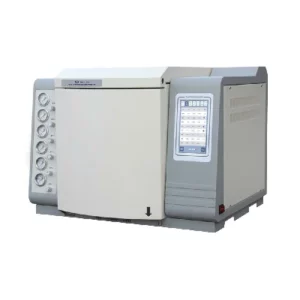Gas chromatography (GC) analyzers are sensitive instruments used for separating and analyzing compounds in gas samples. Several environmental considerations are associated with the operation and maintenance of GC analyzers:
- Air Quality: GC analyzers require clean air as a carrier gas and for the operation of various components, such as detectors and injectors. Poor air quality in the laboratory environment can introduce contaminants or interfere with sample analysis, leading to inaccurate results. Proper ventilation and filtration systems are essential to maintain air quality and ensure reliable GC performance.
- Temperature Control: GC analyzers typically operate at precise temperature conditions to ensure optimal separation and detection of analytes. Fluctuations in ambient temperature or inadequate temperature control can affect the accuracy and reproducibility of results. Environmental conditions should be monitored and controlled to maintain stable temperatures within the GC system.
- Humidity Levels: High humidity levels in the laboratory environment can impact the performance of GC analyzers, particularly in sensitive components such as detectors and columns. Moisture can affect baseline stability, detector sensitivity, and column efficiency, leading to variability or drift in chromatographic results. Maintaining humidity levels within recommended ranges helps mitigate these effects and ensures reliable analysis.
- Contaminant Exposure: GC analyzers are susceptible to contamination from various sources, including airborne particles, volatile organic compounds (VOCs), and sample carryover. Environmental contaminants can degrade column performance, interfere with detector signals, or introduce artifacts in chromatograms. gas chromatography analyzer Minimizing exposure to contaminants through proper laboratory practices, sample handling procedures, and routine maintenance is essential for reliable GC analysis.
- Instrument Storage: Proper storage conditions are critical to preserving the integrity and performance of GC analyzers when not in use. Instruments should be protected from exposure to extreme temperatures, humidity, dust, and other environmental hazards that could damage sensitive components or affect calibration. Secure storage areas with controlled environmental conditions help prolong instrument lifespan and maintain analytical accuracy.
- Waste Management: GC analyzers generate waste streams, including carrier gases, sample residues, and consumables such as columns and septa. Proper disposal of waste materials is essential to prevent environmental contamination and ensure compliance with regulatory requirements. Implementing waste management protocols, such as recycling, treatment, or disposal according to local regulations, helps minimize environmental impact associated with GC analysis.
- Energy Consumption: GC analyzers require energy to operate, including electricity for instrument components and gases for carrier and detector systems. Optimizing energy efficiency through the use of energy-saving features, efficient instrument design, and proper maintenance practices helps reduce environmental footprint and operating costs associated with GC analysis.
By addressing these environmental considerations, laboratories can optimize the performance, reliability, and sustainability of GC analyzers while minimizing their environmental impact. Implementing best practices for air quality, temperature and humidity control, contaminant management, waste disposal, and energy conservation ensures environmentally responsible operation of GC instrumentation for accurate and reliable chemical analysis.
